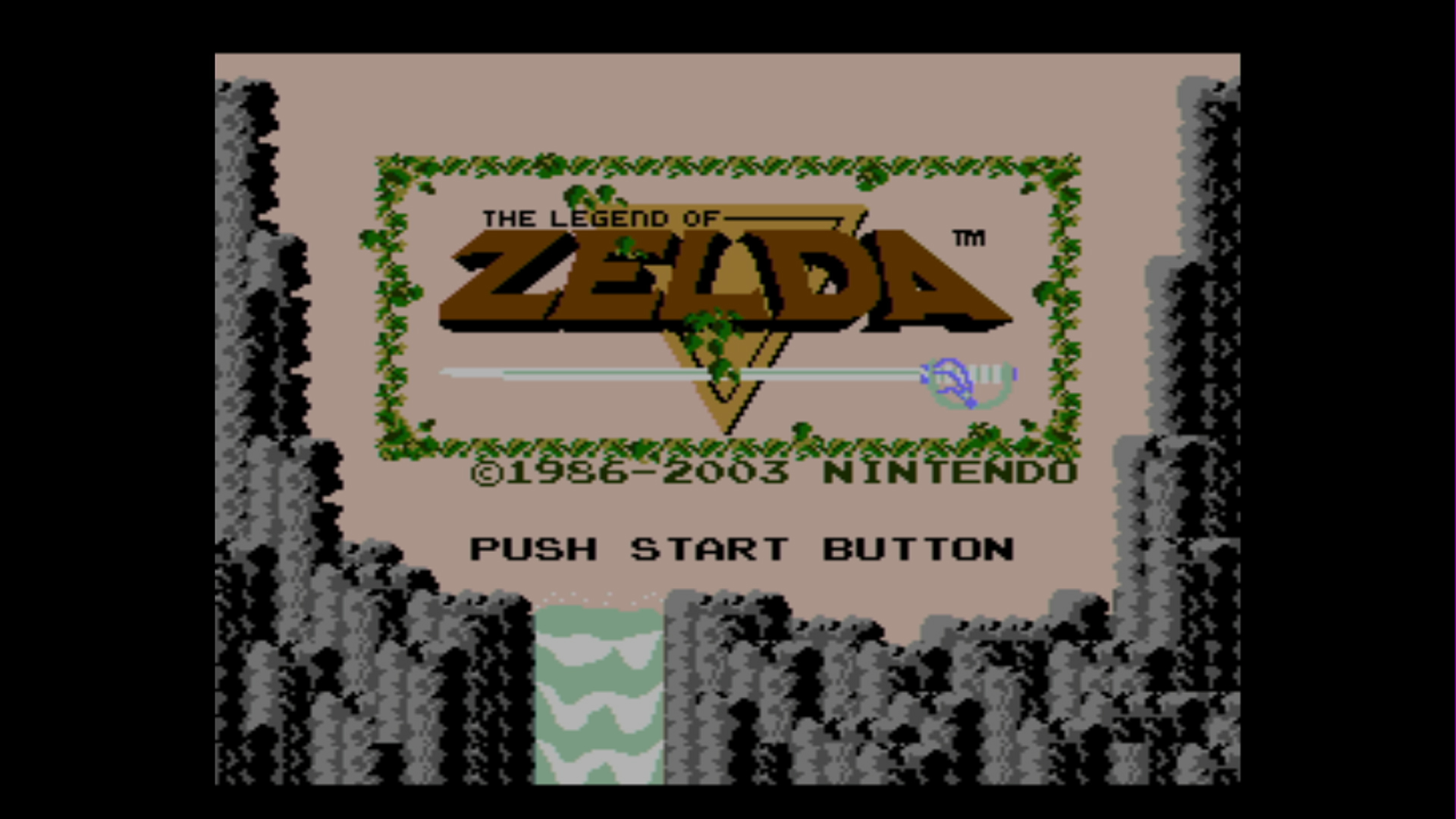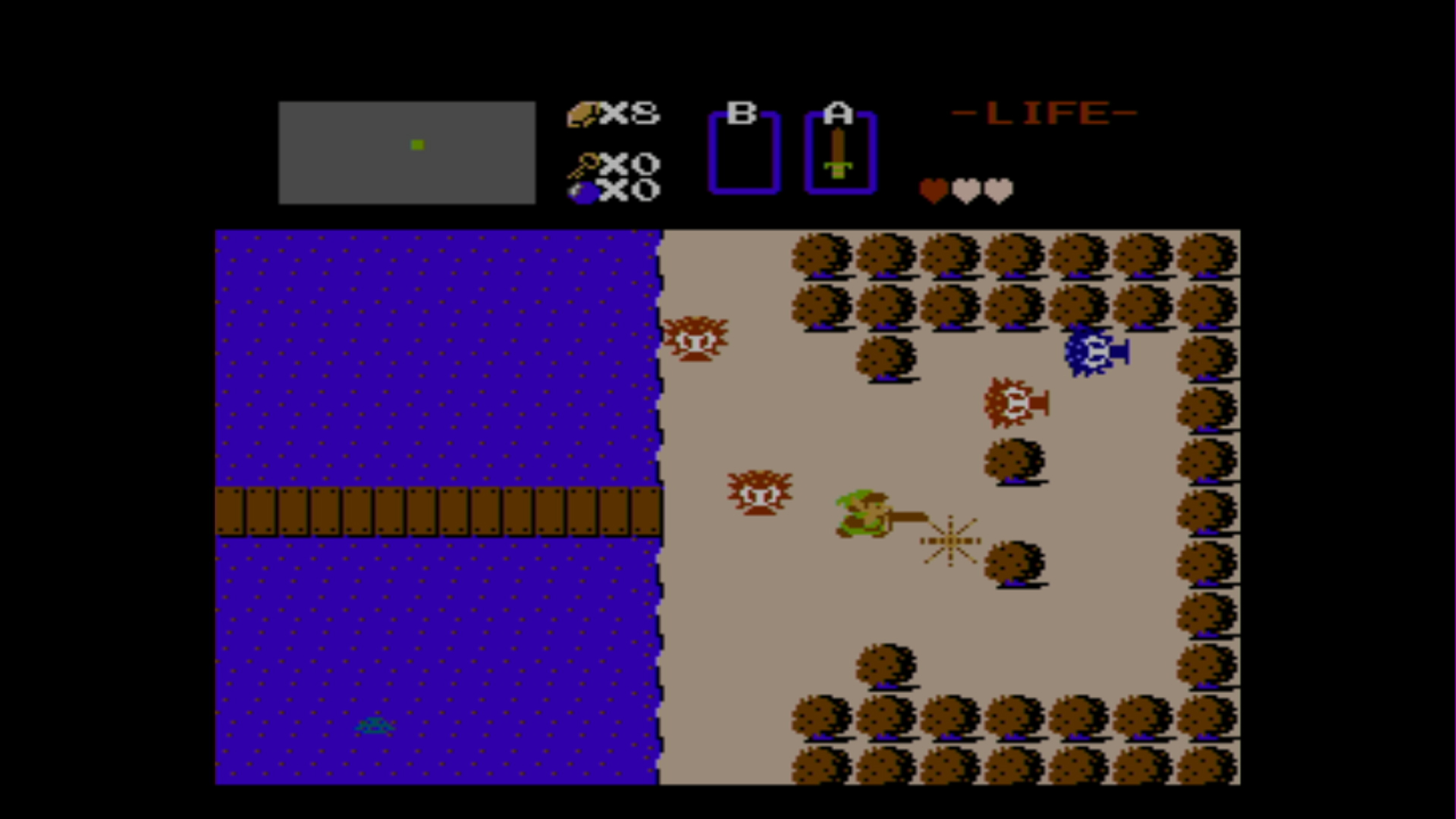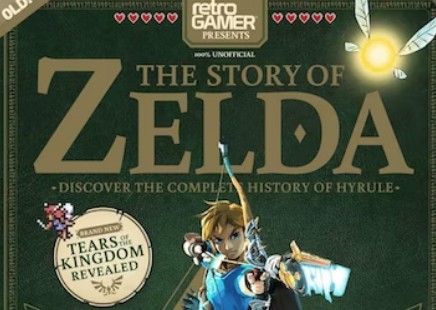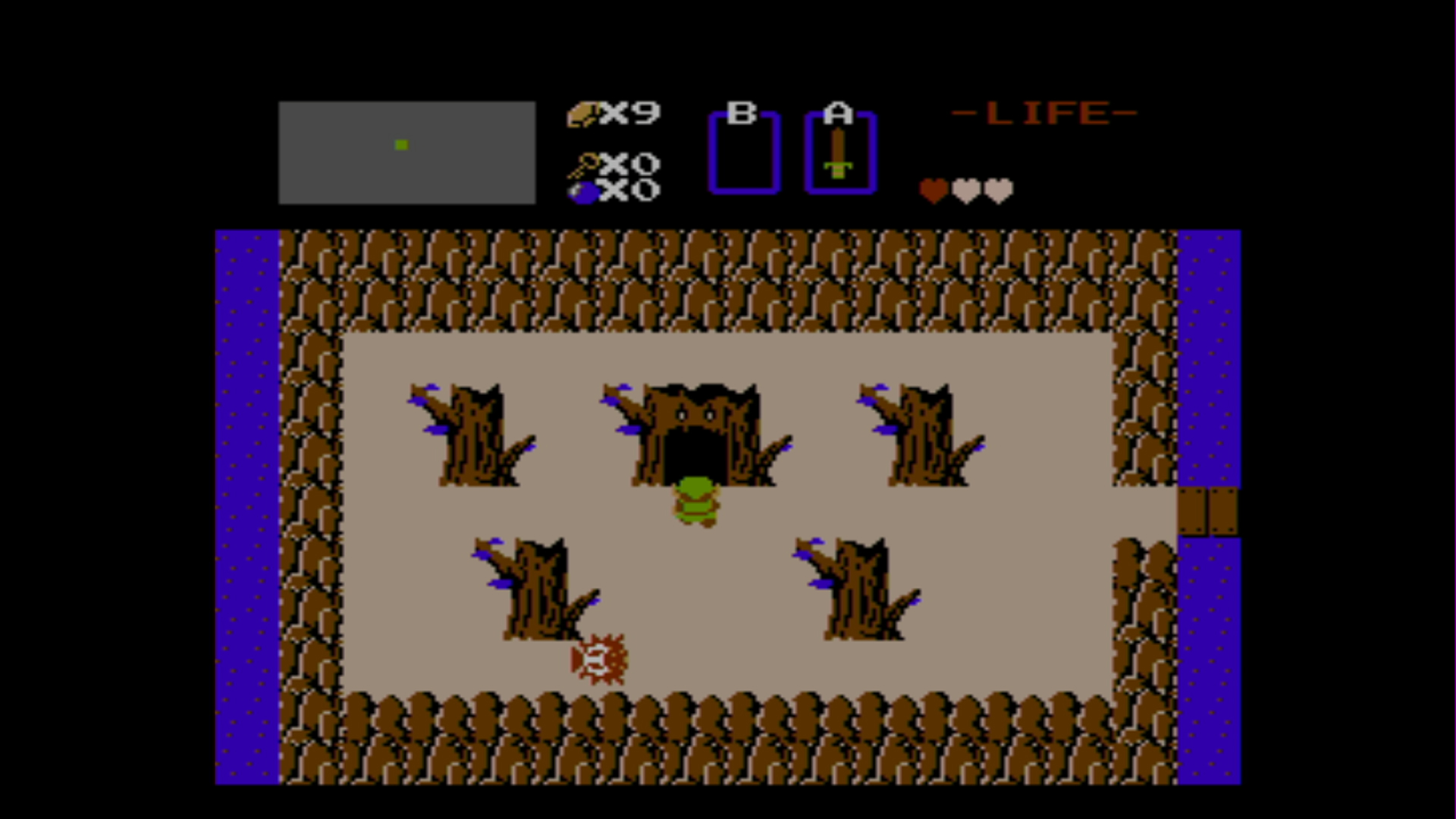The first Legend of Zelda game is a masterpiece that has enthralled us for almost 40 years
And here's why it's still well-worth playing today

You really have to hand it to Miyamoto and his band at Nintendo. To make one of the greatest and most important video games of all time, in the shape of Super Mario Bros, was one thing. But to repeat the same trick just a year later, and in a completely different genre, is just incredible. In fact, there isn't even a year between Super Mario Bros and The Legend Of Zelda. There were only five months between the Japanese release dates of each game, yet the latter represents a giant stride from the former in terms of game design. Where Mario was brilliantly simple, placing you at the start of a linear journey and merely asking you to move a little plumber to the right, Zelda offered a world of possibility by comparison.
Starting off in the middle of the vast land of Hyrule, it put you in control of an elf-like boy named Link, with three possible exits standing before him, and then… did nothing. No instructions, no dialogue and no hints. Just the promise of adventure and an invitation into the unknown. Which way should you go? Well, that was entirely up to you, and that was the entire point of the game. There was an ultimate goal, of course - to collect the eight scattered pieces of the Triforce Of Wisdom, defeat the evil warlord Ganon and rescue the titular Princess Zelda - but it was the open nature of how you approached this task that really made The Legend Of Zelda so compelling.
Into the unknown


It's a well-known story that Miyamoto's inspiration for Zelda came from his childhood memories of exploring the Japanese countryside without a map and the pleasure that he got from discovering places he had no previous knowledge of. The goal of the Zelda project was to capture that childlike fascination with the unknown, the sense of wonder that the world can provoke when everything around you is so new and unusual. And that project also happened to fortuitously coincide with the development of the Famicom Disk System, Nintendo's Famicom add-on that side-stepped the rising cost of ROM chips and allowed developers to create much bigger games than before.
The Disk System's re-writable media also allowed for game progress to be permanently saved without the need for cumbersome passwords, and this was a crucial technological advantage that enabled Nintendo to further distinguish its console games from those of the arcades. Coin-operated arcade games were still the dominant form of video gaming in 1986 and were focused very much on short-term challenge, cyclical and repetitive gameplay, and the thrill of chasing a high score. But Nintendo wanted its games to be something different; something you played over a long period of time, returning to like a good book to enjoy an ever-evolving experience; a journey, rather than the same few setup over and over again.
This is very much how the modern video game can be described over 35 years on, of course, but The Legend Of Zelda was one of the first games to truly offer that kind of deep, long-term experience. And it did it very well indeed. So many early videogames can be credited as the first to do one thing or another, but Zelda did it all, establishing the rules of the modern adventure game in such a style that, alongside its sequels, it remains brilliantly fun almost four decades later, while Nintendo's competitors were still playing catch-up.
Secrets and surprises

"The Legend Of Zelda's real brilliance is that it has the confidence to just drop you into its world and leave you to explore, experimenting with its mysteries without any real hand-holding."
It's not just the tantalising nature of Hyrule's open world that makes Zelda so appealing. It's the way Link's ever-increasing inventory and abilities open up new routes through that world, ensuring that it rewards progress with a steady stream of surprises and discoveries right up to the end. There's the contrast between the freedom of the overworld and the tightly focused structure of the dungeons beneath the ground. There's the way each weapon Link acquires has more than one obvious use, forcing you to experiment and be creative with the way you play.
And, of course, there's the wealth of secrets that permeate the world, not just rewarding the player but encouraging them to dig deeper, play harder and uncover hidden treasures that make you feel like the best player in the world. It's a deeply personal feature that makes you feel special for finding those secrets and personalises the experience, even though those secrets are, in reality, accessible to everyone. With almost four decades under its belt, the Zelda series has since gone from strength to strength, and many people have a favourite entry in the series that isn't the first one.
Weekly digests, tales from the communities you love, and more
A Link To The Past, Link's Awakening, Ocarina Of Time, and Breath Of The Wild could all legitimately lay claim to the title of 'Greatest Zelda', but there's something pure about that first game that sets it apart from its successors. Right from Zelda II onward, the series began to change. It still retained the core features of an overworld, a series of dungeons and an expanding bag of tricks, but it also lost something along the way. As the series has become increasingly preoccupied with telling a story, you could argue that it has also limited itself, weighing its opening moments down with unnecessary dialogue and lengthy tutorials that actually distance you from Link instead of doing the opposite.
The Legend Of Zelda's real brilliance is that it has the confidence to just drop you into its world and leave you to explore, experimenting with its mysteries without any real hand-holding. Instead of simply telling you a story, it allows you to live the adventure; its events are driven by your decisions and actions. It feels unique, it rewards those who jump in at the deep end to go see what they can find, and it's a quality that the Zelda series would do well to nurture as it evolves.
Keep up to speed with all of our celebratory Zelda coverage with our The Legend of Zelda celebration hub
Retro Gamer is the world's biggest - and longest-running - magazine dedicated to classic games, from ZX Spectrum, to NES and PlayStation. Relaunched in 2005, Retro Gamer has become respected within the industry as the authoritative word on classic gaming, thanks to its passionate and knowledgeable writers, with in-depth interviews of numerous acclaimed veterans, including Shigeru Miyamoto, Yu Suzuki, Peter Molyneux and Trip Hawkins.



